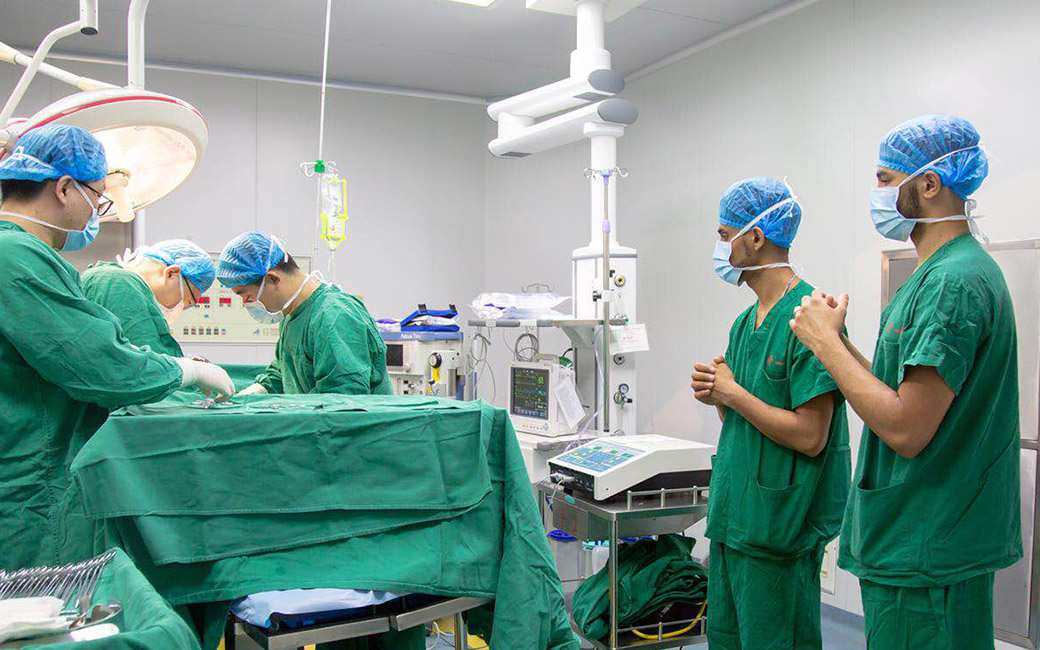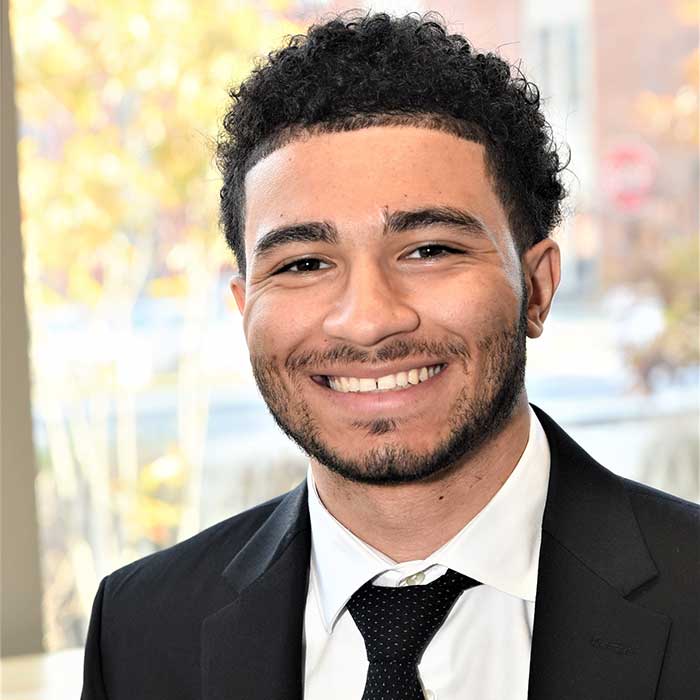Great things come in small packages
Chemistry major Pierce Brown’s award-winning research examines how “nanovehicles” can deliver drugs to cancer cells.

Even in nanotechnology there are gig workers of sorts — chemical clusters engineered to ferry life-saving drugs to targeted cells much like Uber drivers take passengers to specific destinations.
Just ask chemistry major Pierce Brown. He is helping synthesize what he calls “nanovehicles” from gold and iron. When paired with a cancer drug, “we can use the nanovehicle to transport small, controlled doses of drugs to theoretically treat cancer,” he explains.
Beginning in his freshman year, Brown worked with Mary Devadas, assistant professor of chemistry, creating metallic clusters, then testing their stability and reactions to different wavelengths of light.
He built on these experiments, eventually confirming the stability of gold/iron nanoclusters and their usefulness in medical treatments, according in an abstract of his project, “A kinetically controlled synthesis of Au25SG18 and iron doped AuxFemSG18 quantum sized gold nanoclusters for theranostics.” His cancer cell studies were done in collaboration with biology professor Elana Ehrlich.
This project earned him the first-place prize in the 2019 Undergraduate Chemistry and Biological Sciences Symposium at UMBC. “A surprise,” he notes, because he shies away from public speaking.

His scholarship has garnered many awards — Freshman CRC Press Chemistry Award, Organic Award, Inorganic Award, Maryland Section of the American Chemical Society Award as well as an undergraduate research grant from the Fisher College.
He has also co-authored two peer-reviewed articles: “Variations in electronic states of coumarin hexanethiolate-labeled i-Au25 and bi-Au25 clusters,” published by the Materials Research Society and “Gold nanoparticles loaded with cullin-5 DNA increase sensitivity to 17-AAG in cullin-5 deficient breast cancer cells,” published by the International Journal of Pharmaceutics.
Brown credits his relationship with Devadas, his adviser, as instrumental to his success in independent research. “While she’s always there to support me,” he says, “she lets me sink before she saves me.”
“Dr. Devadas encourages me to problem solve, to think things through so I can come up with my own answers,” he explains.
Brown and Devadas won the prestigious 2020 American Chemical Society Division of Inorganic Chemistry Award for Undergraduate Research in November 2020. This national award is given to an “outstanding North American undergraduate student and his preceptor in the field of inorganic chemistry.”
“ All the professors at Towson have been phenomenal and set me up for success. ”
With his sites on medical school, Brown volunteered through the Asian American Career Center to shadow Chinese physicians. In Qingdao, southeast of Beijing, he gained awareness about how the Chinese merge modern technology with traditional Chinese medicine. A visit to a community health center in Guatemala was delayed due to the pandemic.
Back at TU, Brown is a chemistry tutor in TU’s tutoring center, helping others much like he has been aided throughout his college career.
“All the professors at Towson have been phenomenal and set me up for success,” he says.